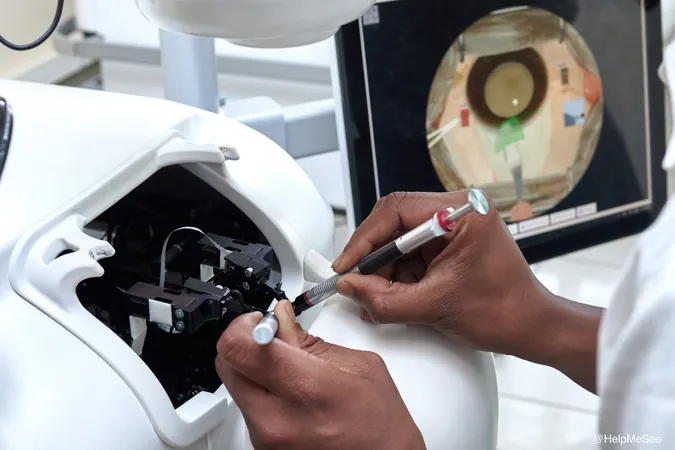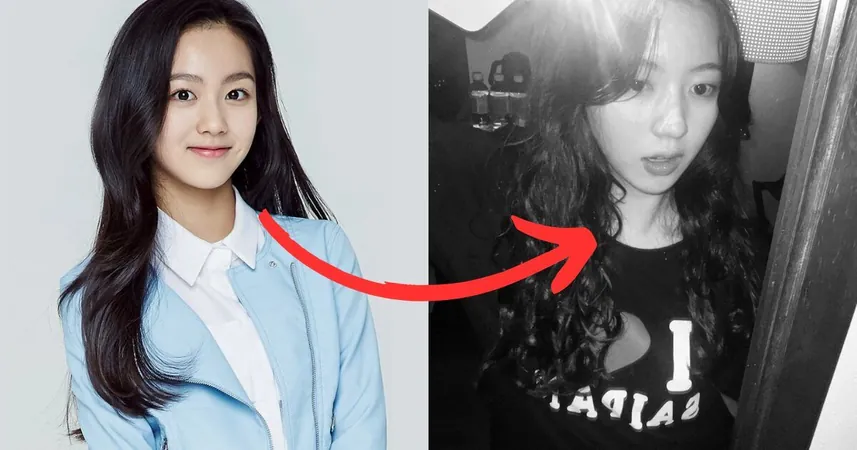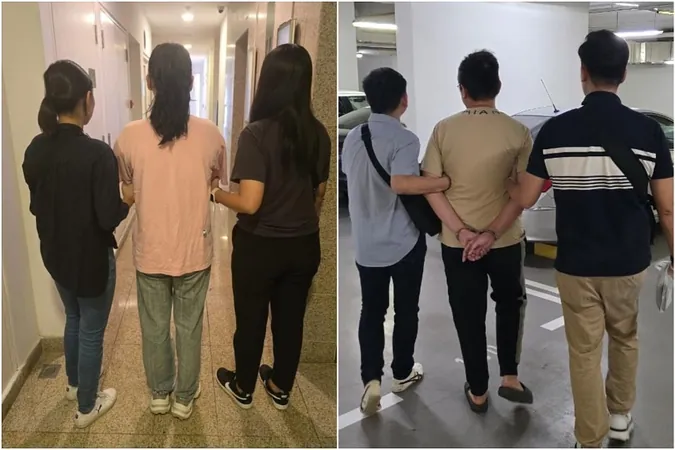
The Mazava Project: Revolutionizing Vision Restoration in Madagascar
2024-11-16
Author: Ming
Introduction
In a nation where over 200,000 individuals suffer from blindness due to untreated cataracts, the Mazava Project is lighting the path to recovery in Madagascar. This initiative, part of the global mission from HelpMeSee, aims to combat the staggering rates of avoidable blindness in low-income countries through targeted surgical training.
The Cataract Crisis in Madagascar
According to the World Health Organization, cataracts are the leading cause of preventable blindness worldwide, with more than 100 million people in developing regions affected. In Madagascar, a country with a population exceeding 28 million, only 25 surgeons were available at the project's inception, with a mere five serving in remote areas. This stark shortage correlates with the country's dismal cataract surgery rate of just 350 procedures per 1 million people—a statistic that underscores the urgent need for change.
Training Local Surgeons
Dr. Jean-Marie André, a seasoned ophthalmologist with four decades of experience, has spearheaded efforts in training local medical professionals under this initiative since joining HelpMeSee in 2013. Recognizing the dire need for surgical expertise, Dr. André and his team have partnered with Madagascar’s Ministry of Public Health and Polyclinic d’Ilafy Hospital in Antananarivo to implement the Mazava Project—'mazava' meaning "bright" in Malagasy.
Innovative Training Program
The project's innovative training program targets general practitioners, equipping them with the skills to perform manual small-incision cataract surgery (MSICS). The curriculum blends cutting-edge technology with hands-on experience, including simulator training, an e-book resource, and rigorous certification processes. Trainees like Rico Ludovic Mpanasoa exemplify this new breed of surgeons, having completed two years of foundational ophthalmic education before joining this transformative program.
Comprehensive Medical Training
A unique aspect of the Mazava Project is that it doesn't stop at cataract surgery training. Medical professionals are also schooled in handling various ocular emergencies and complications, making them well-rounded practitioners capable of saving patients' eyesight in critical circumstances.
Building a Sustainable Future
With 20 surgeons already certified and 30 in training under the expert guidance of Dr. Rindra Rafanomezantsoa, the Mazava Project is poised to make significant strides in fighting cataract blindness. Each participant is closely monitored post-training, with ongoing support and opportunities for refresher courses to ensure they remain at the forefront of eye care.
Conclusion
This collaborative effort boasts a sustainable future, with an emphasis on reinforcing local healthcare systems. As Dr. Rafanomezantsoa notes, "We not only teach them; we stand beside them in their journey, ensuring that they build the confidence necessary to thrive independently in their communities." The Mazava Project is more than just an initiative; it's a beacon of hope illuminating the path towards a future where blindness due to cataracts is a thing of the past in Madagascar, and it serves as a model for similar efforts around the globe. The countdown has begun for a vision restored—one surgery at a time!




 Brasil (PT)
Brasil (PT)
 Canada (EN)
Canada (EN)
 Chile (ES)
Chile (ES)
 España (ES)
España (ES)
 France (FR)
France (FR)
 Hong Kong (EN)
Hong Kong (EN)
 Italia (IT)
Italia (IT)
 日本 (JA)
日本 (JA)
 Magyarország (HU)
Magyarország (HU)
 Norge (NO)
Norge (NO)
 Polska (PL)
Polska (PL)
 Schweiz (DE)
Schweiz (DE)
 Singapore (EN)
Singapore (EN)
 Sverige (SV)
Sverige (SV)
 Suomi (FI)
Suomi (FI)
 Türkiye (TR)
Türkiye (TR)